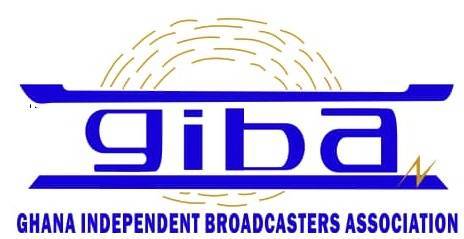- November 28, 2018
- Posted by: emblisha
- Category: News

The impact of the digital migration and developments in the digital broadcasting space as well as changes in consumer demographics and preferences makes it necessary to reconsider broadcasting policies and regulations that safeguards and strengthens freedom of expression,
freedom of the media and access to information. Content creators, channel aggregators and marketers will have to improve their offering to attract and keep audiences, and win in a space where options means loyalty is not guaranteed. For industry players in Ghana, there is a need to understand what Digital Broadcast Migration means for the sector and where future opportunities lie.
In the light of this, the Ghana Independent Broadcasters Association (GIBA) organised its first in the series of Dialogues, an event branded “GIBA Digital Media Dialogue” under the theme; “Ensuring an Independent and Free Broadcast Industry: Leveraging the Digital Economy for Growth and Development”. The event sought to bring together relevant stakeholders to help understand Ghana’s migration from analogue to digital broadcasting, the threats and opportunities of the rapidly changing technological environment, shape policy direction and promote best practices that positions Ghana as the beacon in West Africa and ultimately, in the global digital economy.
The “GIBA Digital Media Dialogue” which is supported with funding from STAR-Ghana (Strengthening Transparency, Accountability and Responsiveness in Ghana) and other cooperation partners, brought together digital media innovators, experts, technicians, policy makers, content providers and media entrepreneurs to push innovative thinking and find ways to leverage digital media to fast-track national development and economic growth.
All over the world, countries are migrating from analogue terrestrial television broadcasting to digital terrestrial television broadcasting. The switchover to digital terrestrial television is no easy feat, with implications for broadcasters, content providers, manufacturers, network operators, regulators and the government. The success of the digital migration process is assured when properly managed in coordination with all broadcast industry stakeholders.
Ghana’s migration from analogue to digital television broadcasting is pursuant to the International Telecommunications Union (ITU) Radio Communication Conference of 2006 (RRC-06) and the subsequent Geneva 2006 Agreement (GE-06) establishing the Digital Terrestrial Broadcasting Frequency Plan in the radio frequency bands (174 – 230) MHz and (470 – 862) MHz, that Ghana signed unto. The GE-06 Agreement set 17 June 2015 as the deadline for the transition from analogue to digital broadcasting in the Ultra High Frequency (UHF) Bands IV & V, and June 17, 2020 as the deadline for migrating onto the Very High Frequency (VHF) Band.
“GIBA believes that Ghana’s transition from analogue to digital broadcasting, should make technology and innovation as well as an independent media, the priority of the broadcasting sector in particular, and the national agenda aimed at fostering socio-economic development while safeguarding national security”… says the President of GIBA, Mr. Andrew Danso-Aninkora.
The digital terrestrial television (DTT) platform is known to be the foundation of Free-to-Air television services upon which the national and local broadcasters depend to reach and provide information to their viewing public.
The digital migration process offers numerous benefits and in essence:
1. TO CONSUMERS: Digital terrestrial television broadcasting affords the viewer more programming choices with clearer and better video and sound quality. Consumers will benefit from value added services like Electronic Program Guides (EPG), Parental Guides for parent control, internet connectivity, e-commerce and e-governance services, e-newspapers, etc.
2. TO BROADCASTERS: Reduction in requirements for transmitters per site means reduced cost for provision of service and maintenance. Signal coverage will be equally distributed across the country depending on where the transmission sites are located.
3. TO CONTENT PROVIDERS: Content is king, and for most content producers, relevant and valuable content places them in a better position to engage customers and increase leads. The increased demand for content will thus stimulate creativity in content creation and generation and this should create a healthy competition which will ultimately result in quality content provision.
4. TO REGULATORS: Convergence in the underlying technological and economic conditions in the electronic communications and audiovisual sectors should be matched by at least a minimum level of convergence and rationalisation of regulatory regimes.
It is the desire of GIBA that the digital migration process provides a win-win situation for all (stakeholders and regulators alike) where Ghana is seen as the winner in the end.
https://m.facebook.com/story.php?story_fbid=2373498709350812&id=100000721181099VIDEOS: GIBA Digital Media Dialogue
For further information or enquiries, please contact:
The GIBA Secretariat or Gloria Hiadzi on,
Tel: +233 302 251 910 or email: info@gibagh.org
